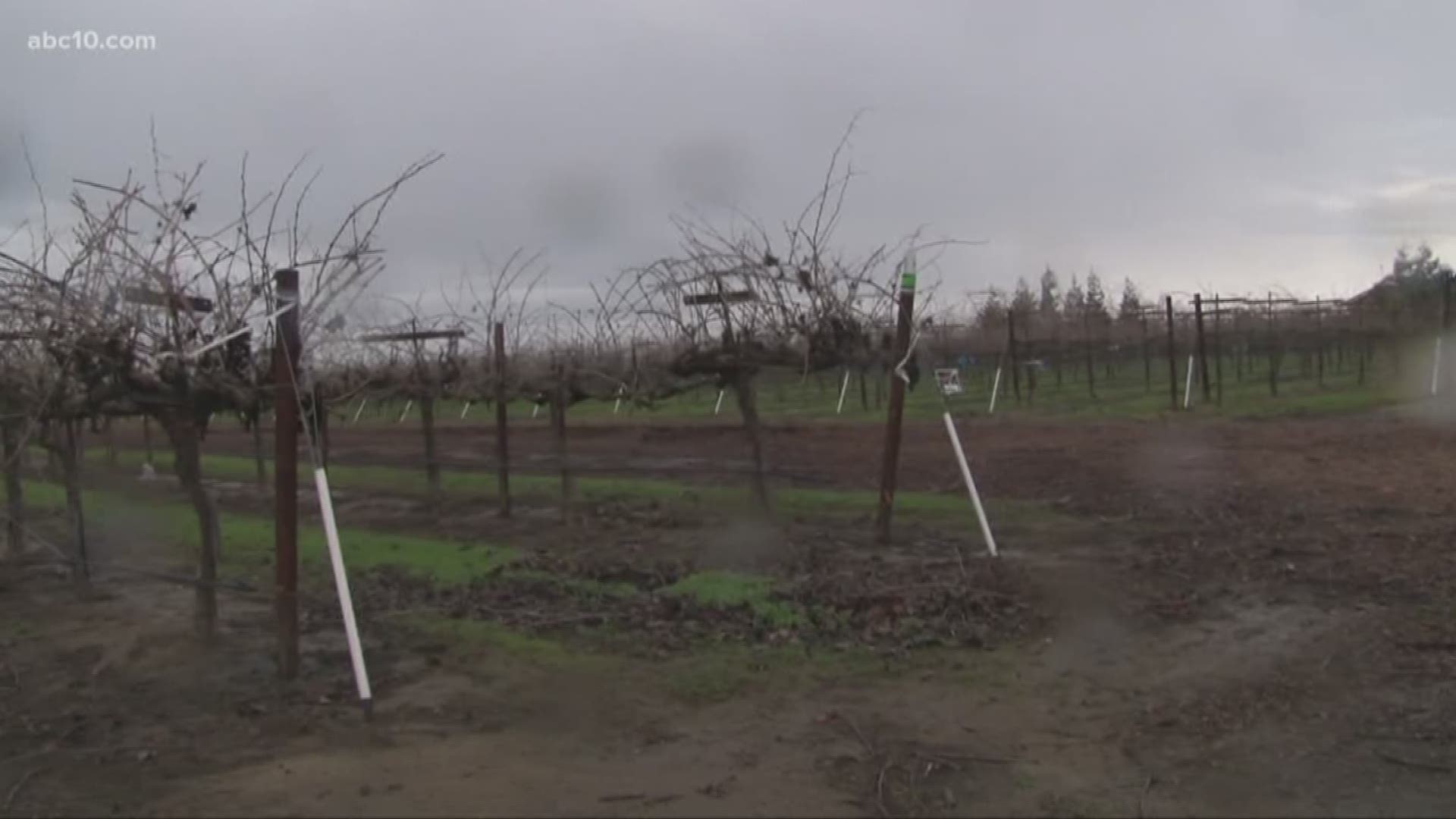LODI, Calif. — For growers in the San Joaquin Valley who need water to grow their crops, a series of powerful winter storms is more than welcome.
San Joaquin County ranks seventh when it comes to total agricultural production. It's valued at over $2.8 billion with wine grapes topping the list of most valuable of the county's crops.
"Well, it's a good thing for most of agriculture," said San Joaquin Farm Bureau Federation Executive Director Bruce Blodgett. "We need the water."
But while the rain water is wanted, it isn't all the area needs.
"We need the storage," Blodgett said. "We need those reservoirs being filled up. We need the snow pack. What's good for the ski resorts is also good for the farmer."
Blodgett says grape vines are dormant right now, and pruning season is underway. He says saturated ground could be an issue when it comes to pruning.
"So it kind of delays those activities, puts that off," Blodgett explained.
He says California needs to provide more water storage to capture rain water "rather than seeing it get flushed out to the ocean." He points to the $5.1 billion proposed sites reservoir north of Sacramento as one way to provide the extra water storage.
Water would be piped from the Sacramento River storing 858,000 acre-feet into the new reservoir. Last summer, the state approved $816 million in voter-approved bond money for the project.
Some environmental groups have harshly criticized the water project.
"Friends of the River," an environmental group whose mission statement says it "protects and restores California rivers by influencing public policy and inspiring citizen action" condemns the sites plans.
Furthermore, on its website, the organization writes:
"In addition to reducing flows in the Sacramento River, the reservoir would drown up to 15,000 acres of existing oak woodlands, grasslands, wetlands, and agricultural land in the western Sacramento Valley. Impacts associated with the reservoir footprint would harm the federally protected bald eagle, a host of other sensitive wildlife species, several rare plants, and significant historical and cultural resources."
Right now, most state reservoirs are near or even above historical averages for this time of year.
Continue the conversation with Kurt on Facebook.
________________________________________________________________
WATCH MORE: 5 hacks to get you through a power outage

